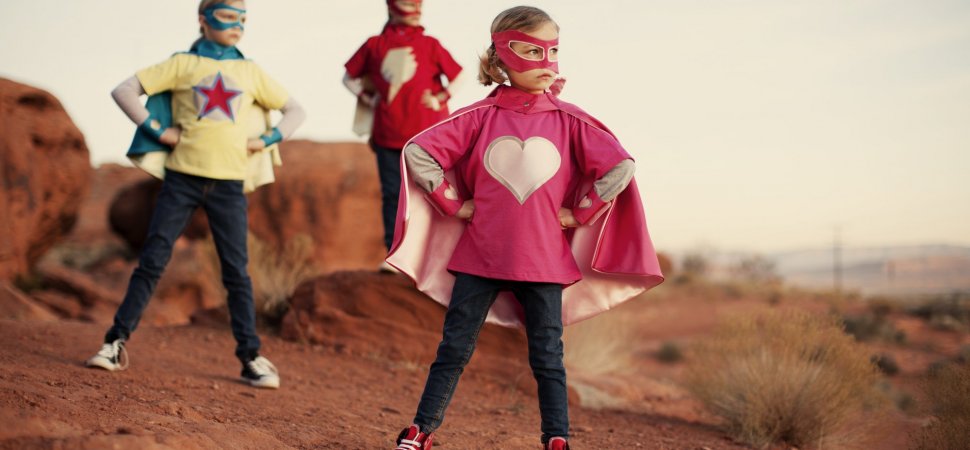Sheryl Sandberg has toured the country speaking on women and leadership. In her talk, often on college campuses, she asks this of all the young men in the audience:
“Raise your hand if you were ever called ‘bossy’ growing up.”
About 10 percent of hands go up.
When she does the same for young women, 90 percent of hands go up.
This bears repeating: Over and over, at different colleges in different parts of the country, 90 percent of young women raise their hands when asked if they were called “bossy” as kids.
Ironic that they raise their hands for that, when so many girls stop raising their hands over the course of their scholastic career.
From elementary to high school, girls’ self-esteem drops 3.5 times more than boys’. By middle school, girls report being significantly less interested in leading than boys.
Many of us–male and female–want to see more women leaders in the world. We are dismayed by the fact that only 12 percent of our politicians are women, when women constitute 51 percent of the population. We dislike the fact that the vast majority of leaders in tech, medicine, government, entertainment, and the corporate world are men. We want to see more women leaders everywhere.
But it’s not enough to want it. We’ve got to take practical steps to move the needle, and we’ve got to be realistic about what that means.
It means narrowing the confidence gap between boys and girls, which develops as early as elementary school. And that involves taking a stand for girls in one of the big ways we can: with our words.
Kids aren’t conscious of their associations–their brains haven’t developed that far yet. When they call a girl “bossy,” they aren’t thinking, “I want to shame this girl and stop her from speaking up.”
But the effect is just as detrimental, because you don’t call someone “bossy” because you like the way they’re leading–you call someone “bossy” because you don’t like that they’re leading at all.
As adults, we are not all-powerful (would that we were). But we are incredibly powerful in the small sphere of influence we do have–particularly with children.
We can start by banning the word bossy.
“We don’t use that word for anyone,” a parent could say. “If you don’t like the way someone is leading, you can tell them what you’d like instead–‘I think we should all get a vote in what game we play next.’ But you’re not allowed to label someone ‘bossy.'”
“Why not?” a kid might ask.
“Because it’s not kind. And because it stops girls from leading.”
Eyes on the prize: Banning bossy is not just about encouraging one little girl, it’s about opening up a dialogue. Yes, it’s about protecting her from being shamed for her natural instinct to lead. But it’s also about opening up a conversation with both boys and girls, about boys and girls and leadership. The more we talk about it when it matters, the greater an impact we can have.
I was one of those girls who was called “bossy.” Fortunately, in addition to the kids surrounding me, I had adults like my mother, who said things like “I thought it was great how you took charge on that hike, even if you did lead us all in the wrong direction!” (Yes, this actually happened on a school field trip, and yes, it was as entertaining as it sounds.)
She and others helped me see that maybe the other kids weren’t the only ones with voices that mattered. That maybe it was OK that I liked to lead. That I could be good at it.
We focus a lot of time, attention, and energy on figuring out how to get more women to lead. Ultimately, getting more women to lead must start with making it safe for girls to lead.
Ban the word bossy.
Replace it with “I see you.” And:
“I see you as a leader.”
Originally published at www.inc.com


